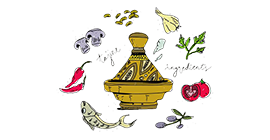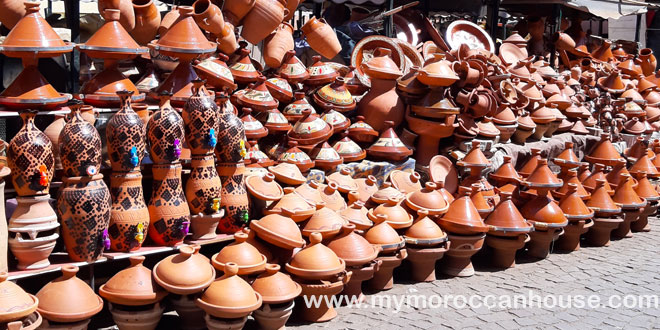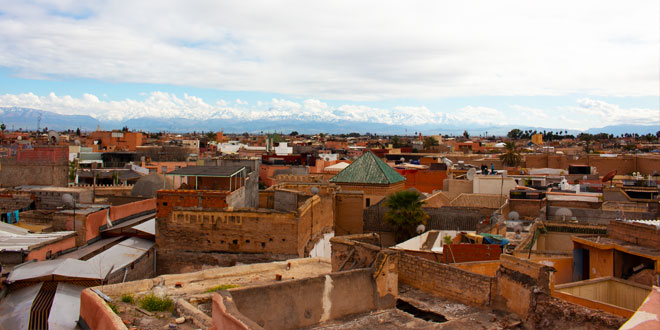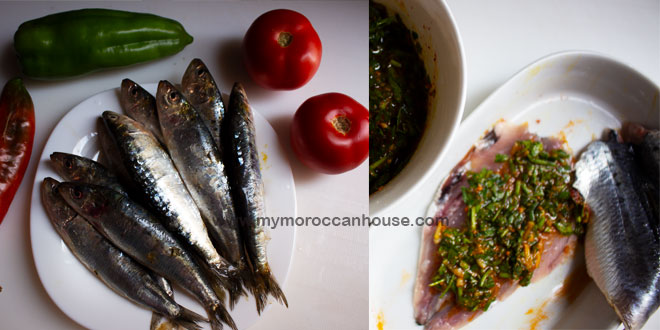You have reached this interesting post as you might be among those who have asked the following questions: Can you drink Moroccan tap water? Can you drink the tap water in Marrakech? What water to drink in Morocco? Can I brush my teeth with tap water in Morocco? if so, you have come to the right place.
Can You Drink Moroccan Tap Water?
In general, as a Moroccan citizen, I can assure you that tap water is fine and drinkable. Here in Marrakech, tap water is safe to drink. All Marrakech families use tap water either for cooking food, making juices, bathing, brushing teeth, etc.
However, if you’re here for just a few days, you will not have enough time to get used to tap water, and in that case, it’s better to drink bottled or mineral water. nonetheless, I suggest you to check with the hotel or the riad anyway.
On the other hand, if you have a health situation and you are fragile to bacteria and thus afraid of getting sick, I would prefer you opt for mineral water. Still, you can use tap water if you are in Marrakech to brush your teeth, and wash your fruits or vegetables without worries.
Can You Drink the Tap Water in Marrakech?
As I said before, it is absolutely safe to drink tap water in Marrakech. Also, tap water in Marrakech is fine for brushing your teeth, bathing, etc and locals drink it, but if you are here for just a few days, you won’t have time to get used to it, consequently, it is better to drink bottled or mineral water.
Tap water in Marrakech is the best and well treated. Here in Morocco, the Ministry of Public Health, together with the collaboration of ONEP, is responsible for controlling the quality of water resources for drinking water supply networks in cities.
The National Office for Drinking Water is responsible for controlling the distribution of water in urban areas and in certain rural municipalities. So, Tap water in Morocco is drinkable and fit for human consumption with no worries at all.
To put it simply, yes, officially the water in Marrakech is drinkable thanks to water treatment, chlorination, and the control and maintenance of the water distribution system in the city.
However, the main issue with tap water somewhat has a taste that you might not get used to in a short period of time. That is why I suggest you if you are staying here for short time buy a 5-liter water container which is cheaper and more economical. You can find these water containers easily in corner shops, or in big markets as Acima, Marjane, Aswak Assalam, etc. You would better go for brands like Bahia water, Ain Saiss as the water tastes neutral and good.
What Water to Drink in Morocco?
As already stated, tap water is drinkable in Morocco. Nonetheless, it is favorable to buy mineral water to avoid any risk.
It is best to opt for bottled spring water with low mineral content. In Morocco, you have the choice between Aïn Saiss, Aïn Soltane, and Aïn Ifrane. Other waters available on the market are mineral waters, the best known of which are Sidi Ali and Sidi Harazem.
Moroccan mineral water brands:
Aïn Atlas
from the Hammou Guemguem spring, not far from Oulmès.
Aïn Ifrane
It is natural mineral water that is born in the mountains of the Ifran region, in the Middle Atlas, at an altitude of 1713 meters.
Aïn Soltane
Aïn Soltane is mineral water famous in Morocco.
Bahia
Bahia is a Moroccan table water produced by Mineral Waters of Oulmès. Bahia ranks first in the table water segment.
Oulmes
Oulmès mineral water is a naturally sparkling mineral water at the source of Oulmes.
Sidi Ali
Water from the Sidi Ali spring originated in the depths of the Middle Atlas mountains in Morocco. Created in 1978.
Can I Brush My Teeth with Tap Water in Morocco?
I have already stated that tap water is safe to use and drink in Morocco. We, the inhabitants of Marrakech, use tap water every day and it is harmless.
Still, if you are here in Morocco for a short period of time, and you have family and kids with you, you would rather opt for bottled water, as you don’t know how your body might react to the different bacteria in the local tap water.
Riads and hotels recommend drinking bottled water for tourists if they are only staying for a short time. many hotels have filtered water for guests that is considered safe to drink because some hotels and tourist residences are concerned about plastic pollution from bottled water.
Conclusion
In Morocco, tap water is safe and drinkable; you can brush your teeth with it without any problem. However, in my point of view, it is preferable to choose bottled water as bacteria exist and it proliferates faster with heat, in Morocco, as in the USA or in France. Thus, people, especially children might fall ill and have diarrhea for instance.
The bottom line is:
- drink mineral water, or filtered water
- be careful with raw vegetables
- wash your hands
- enjoy well-cooked vegetable tajines and well-cooked skewers
- wash your fruits and vegetables if you buy them from the local market
What Is so Special About Morocco? Reasons Why You Should Visit Morocco
Morocco is a land of glamorous and vivid contrasts. The gateway to two continents, it is a country of breathtaking landscapes, rich in history and heady with magnific scents and spectacular sights.
While the countryside is home to old traditions and diverse peoples, the ever-growing urban centers boast incredible new architecture together with the old, and activities to suit all modern tastes.
Morocco’s diverse geography, multicultural atmosphere, and rich history make it a mesmerizing country.
Its towns offer a striking contrast of ancient kasbahs, mosques and souks and modern architecture, with a
mix of Berber, Arab and African peoples.
In the crowded ancient medinas, young men in designer jeans haggle over cell phones alongside traditionally dressed women shopping for housewares.
In the fertile countryside, a farmer riding on a goat is as common a sight as a television satellite perched on a mud-brick roof.
Moroccan culture is extremely rich and difficult to pigeonhole. Moroccan landscape includes beaches, mountains, lakes, forests, and deserts.
Morocco is a unique blend of Arab, African, and European ways of life, and the Moroccans wouldn’t have it any other way.
Moroccan cuisine is rich and varied, owing to a variety of cultural influences. Meat is well-spiced and lean, vegetables are fresh and abundant, and everything is permeated with spices.
Moroccan cooking is quite labor-intensive and dishes are pleasingly presented as well as meticulously prepared.
Beef, lamb, fish, and chicken are all popular and used in a variety of dishes. Pigeon and turkey are also available, and the seafood in the coastal cities is not to be missed.
Meat is prepared according to Islamic halal regulations.
Rice, semolina wheat, and barley grains are used for a variety of dishes. A wide range of spices is used, including cumin, saffron, paprika, ginger, cinnamon, red and black pepper, and a special mixture called ras al-hanout is widely used in Moroccan cuisine.
A typical Moroccan meal starts with something fresh or cooked salads, olives and pickled vegetables and bread, and sometimes a cold beverage. The main course is then brought out, usually in a large pot, or tajine.
Moroccans will either eat from the main dish with their hands or using spoons, or serve food on to individual dishes.
After the main course is through and plates are removed, various fruits are arranged on the table, and mint tea is served, sometimes with Moroccan cookies.



